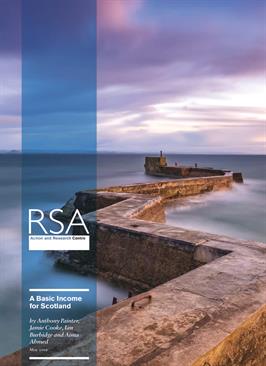There is considerable interest in a basic income in Scotland, and a willingness among policymakers to consider alternatives.
This report explores how Scotland can move towards a basic income by examining at how effective, desirable, and feasible a basic income could be. Our findings are based on working with communities in Fife and modelling the economic impact of a basic income.
A Basic Income for Scotland has four parts:
- Showing the failings of the current system of welfare, based on means-testing and conditionality, in reducing poverty and economic insecurity.
- Reporting on the findings from a series of citizen and stakeholder deliberations in Fife, which is currently exploring a basic income trial.
- A model of the impact that basic income could have, conducted by Landman Economics using its Scottish tax-transfer model.
- A series of scenarios for political, legal, and administrative pathways toward first a Scottish basic income experiment, and then the adoption by Scotland of an initial basic income.
Throughout this research, we have been fortunate to engage closely with residents in Fife and hear their voices.
Our modelling found that in Fife, a basic income of £2,400 a year would half destitution and reduce relative household poverty by 8.5%. A basic income of £4,800 a year would end destitution and reduce relative household poverty by 33%.
Download A Basic Income for Scotland (pdf, 1.5 MB)
Read Anthony Painter's blog 'The case for Basic income is growing. Scotland can take it forward.'
pdf 1.5 MB
Contributors




